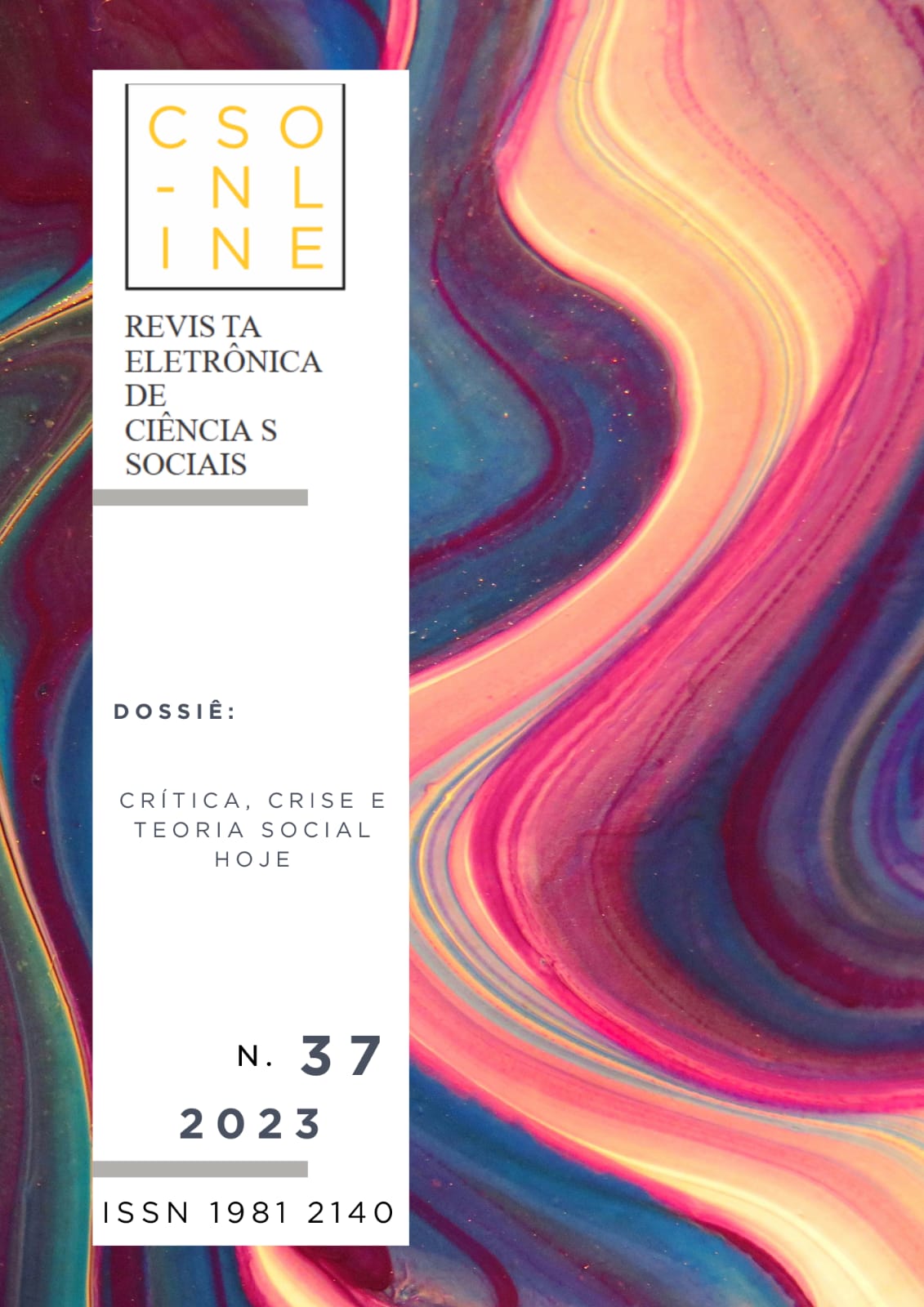HANNAH ARENDT:
: IN THE FACE OF THE FRAGILITY OF THE WORLD, THE MODESTY OF THE CRITIC
DOI:
https://doi.org/10.34019/1981-2140.2023.42748Keywords:
Intellectual, Hannah Arendt, in-between , thought, actionAbstract
This text was written as a reaction to the chapter "The fragile world in the in-between: totalitarian destruction and the modesty of critical thinking - Hannah Arendt" (chapter 5) in Rodrigo Cordeiro's book, "Crisis and Criticism". I therefore reflect on the modest role of the intellectual in the face of the world and its crises, based on Cordeiro's reading of the German philosopher. I try to present indications of Arendt's perception of public intellectuals, not only in her criticism of "professionals", but also based on the qualities she identified, for example, in the behavior of Socrates and Karl Jaspers. The intellectual then appears as a flâneur who is able to step away from the incessant rhythm of life, observe the flow and then stop to think. Subsequently, the intellectual's modest role is understood as that of "guardian" and guarantor of the existence of the necessary space between men in which humanity, and the public world itself, can express itself - the in-between.
Downloads
References
ARENDT, Hannah. A condição humana. Tradução R. Raposo. Rio de Janeiro:
Forense Universitária, ed. 10, 2007.
______. Origens do totalitarismo. Tradução Roberto Raposo. São Paulo:
Companhia das Letras, 1989.
______. A vida do espírito. Tradução Antonio Abranches e Helena Martins. Rio de
Janeiro: Relume-Dumará, 4ed. 2000
________. Homens em tempos sombrios. Trad. Enise Bottman. Companhia de bolso.
Sem paginação Acesso em 10 de agosto de 2020.
https://edisciplinas.usp.br/pluginfile.php/4419740/mod_resource/content/1/AREN
DT%2C%20Hannah.%20Homens%20em%20tempos%20sombrios.pdf
HANNAH ARENDT: DIANTE DA FRAGILIDADE DO MUNDO, A MODÉSTIA DO
CRÍTICO
CSOnline – Revista Eletrônica de Ciências Sociais, Juiz de Fora, n. 37 (2023).
________. Lo que quiero es comprender: sobre mi vida y obra. Org. Ursula Luds.
Tradução: Manueí Abella e José Luis López de Lizaga. Editorial Trotta, Madrid. 2010
________. Karl Jaspers, Correspondence: 1926–1969 (Lotte Kohler and Hans Saner,
eds.). 1992.
BENJAMIN, W. Passagens. Org. Willi Bolle. Trad. Irene Aron e Cleonice Paes Barreto.
São Paulo: Imprensa Oficial do Estado de São Paulo, 2006
BIONDILLO, Rosana. Walter Benjamin e os caminhos do flâneur. Dissertação de
Mestrado em Filosofia. USP – São Paulo, 2014.
CORDERO, Rodrigo. Crise e Crítica: sobre as frágeis fundações da vida social.
Tradução: Aberto Luis Cordeiro de Farias. Ateliê de Humanidades Editorial, Rio de
Janeiro, 2022
________. Crisis and critique: on the fragile foundations of social life. Series:
Routledge studies in social and political though. Abingdon, Oxon; New York, NY :
Routledge, 2017
HELLER, Agnes. Hannah Arendt on the "vita contemplativa". Philosophy & social
criticism, v. 12, n. 4, p. 281-296, 1987.
JOANS, Hans. Actuar, conocer, pensar. La obra filosófica de Hannah Arendt. In:
Hannah Arendt: el orgulho de pensar. Org.: Fina Birulés. Editora Gedisa. Barcelona.
KANT, Immanuel. Crítica da razão pura. EDIPRO, São Paulo. 2020.
MORAES, Eduardo Jardin. Prefácio à edição brasileira. In: ARENDT, Hannah. A vida
do Espírito. Tradução Antonio Abranches e Helena Martins. Rio de Janeiro:
Relume-Dumará, 4ed. 2000
Downloads
Published
How to Cite
Issue
Section
License
Copyright (c) 2024 CSOnline - REVISTA ELETRÔNICA DE CIÊNCIAS SOCIAIS

This work is licensed under a Creative Commons Attribution 4.0 International License.
Todos os artigos científicos publicados na CSOnline – Revista Eletrônica de Ciências Sociais estão licenciados sob uma Licença Creative Commons







